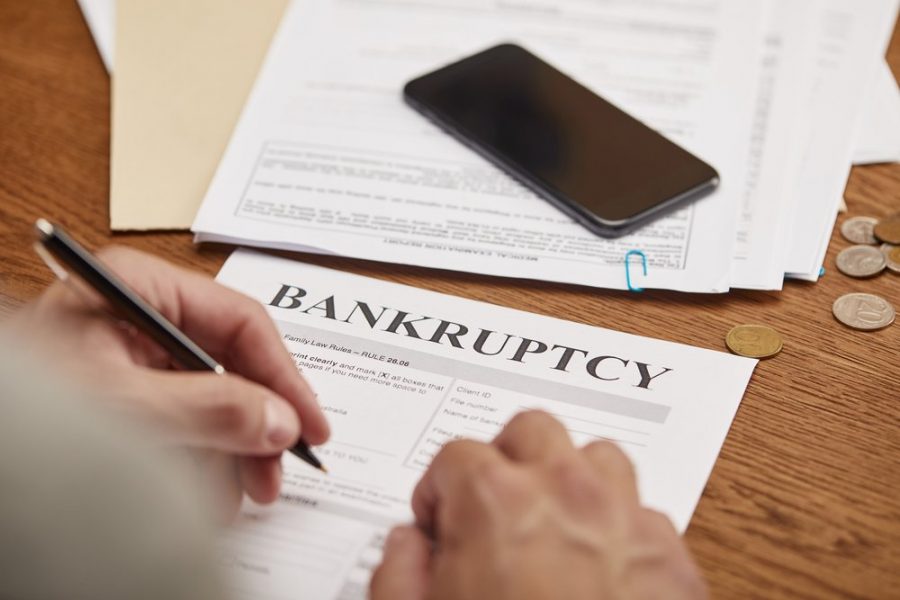Financial hardships may come at some point, and sometimes your only way out is through bankruptcy. Can you file it without your spouse?
Yes, you can file for bankruptcy without your spouse. And it makes the most sense when you and your spouse keep your finances separate, or you don’t want to affect your spouses’ ability to file for bankruptcy in the future.
When Should You File for Bankruptcy Without Your Spouse?
Filing bankruptcy alone makes sense under these circumstances:
- If you and your spouse have separate debts
- You and your spouse keep your finances separate
- If your spouse has assets they don’t want to lose
- If your spouse has a good credit record and has not co-signed for any of your debts
- If your spouse recently filed for bankruptcy (must wait 8 years for Chapter 7 bankruptcy and 2 years for Chapter 13 bankruptcy) and not yet eligible for a discharge
- If you want your spouse to still be able to file for bankruptcy in the future
- Your spouse expects some financial gain, such as an inheritance in the near future.
When Shouldn’t You File for Bankruptcy Without Your Spouse?
It’s not recommended to file bankruptcy without the spouse under these situations:
- You and your spouse have joint debts. Filing bankruptcy separately will still negatively affect your spouse’s credit score. The bankruptcy discharge will only apply to you but it won’t protect your spouse from debt collectors.
- You don’t want to include your spouse’s assets in the bankruptcy estate. Whether you file for bankruptcy, all your marital assets will be included in the bankruptcy estate if you live in a community state, even if the assets belong to your spouse alone.
How Will Filing for Bankruptcy Affect my Spouse?

Effect on your Spouse’s credit
One spouse filing for bankruptcy alone will not affect their spouse’s credit score if the debt is only under your name. In cases of credit card debt where your spouse is the secondary or supplementary cardholder, their credit score may be affected.
You have to check the credit agreement to determine if your spouse is responsible for your debt.
Even if you’re sure that your spouse is not liable for your debt, you should still ask your spouse to request a copy of their credit report after you file for bankruptcy to make sure that no erroneous negative marks are added to her credit report.
Non-Filing Spouse’s Protection from Creditors After Discharge
When you have bankruptcy filing under Chapter 7, your primary goal is to obtain a bankruptcy discharge, which means you’re no longer obliged to repay your debts.
- Joint debts – your spouse is responsible for their share. If you and your spouse have joint debts, the bankruptcy discharge only applies to you. Your non-filing spouse isn’t included, which means they’re still liable for their share of your joint debts.
- Separate debts – your spouse is responsible for their own debts. On the other hand, if the debt is only under your name and you filed for bankruptcy, lenders cannot pursue your spouse to recoup the money you owe. You should also take note that marrying someone doesn’t make you liable for your spouse’s debt, which was incurred before marriage. For example, if you have medical and credit card debts before marriage, you’re solely responsible for your debt. In this scenario, the bankruptcy discharge applies to your debt only.
Spouse’s Ability to File for Bankruptcy in the Future
Your spouse’s ability to file for bankruptcy in the future will not be affected if you file for bankruptcy separately.
How Bankruptcy Affects Property You Own?

Common Law Property States
In common law property states, any assets that your spouse acquired separately during the marriage are not considered part of the bankruptcy estate.
This means that their individual assets will be protected.
For jointly owned property, only your share of the property will be used to pay back your creditors.
However, if the property cannot be divided, these jointly owned assets can be sold by the bankruptcy trustee to pay off your debt.
The trustee will then pay your spouse their share of the proceeds, while your share will be used to pay off your debts.
Community Property States
If you live in a community property state, all assets that your spouse acquired during the marriage are considered community property. They are part of the bankruptcy estate and will be sold by the bankruptcy trustee to pay off your debt.
There are only a few states that recognize community property including Idaho, Texas, and Wisconsin.
Note that you own separately all the property that you have had before the marriage and any asset that you have inherited during the marriage.
How will the Automatic Stay Affect my Spouse?

The court will issue an automatic stay order when you file bankruptcy. It prevents lenders from pursuing their debt collection efforts.
For Joint Debts
If you file for Chapter 7 Bankruptcy without your spouse, the automatic stay order will only apply to you. It won’t protect your spouse.
If you file for Chapter 13 bankruptcy, your spouse because the court can order a co-debtor stay, which prevents lenders from collecting debt from co-debtors.
In a common law property state, properties that your spouse owns separately are not part of your bankruptcy estate and are not at risk if you file alone.
If you are living in a community property state, the automatic stay is applied to you and your spouse’s community property (e.g. wages, furniture, a home purchased during the marriage). Therefore, lenders can’t garnish their wages or seize their assets while the automatic stay is still in place.
Can You File a Chapter 13 Bankruptcy Without Your Spouse?
Yes, you can file a Chapter 13 bankruptcy without your spouse but the latter’s income will be taken into account during the proceedings. Your spouse’s income may increase your repayment plan since both household income and expenses are considered even if it was only you who filed bankruptcy.
However, you can take advantage of the marital adjustment so your spouse won’t be too affected by your Chapter 13 bankruptcy repayment plan. Under the marital adjustment, you may be allowed to exclude your non-filing spouse’s personal and separate expenses such as their car loan payments and medical expenses from their income. But you have to check with your state since marital adjustments may be viewed differently.
Conclusion
It’s possible to file bankruptcy without your spouse. But the more important questions you need to ask yourself are if it’s a good decision and how bankruptcy impacts a spouse. You need to consider the effects of filing for individual bankruptcy on your spouse to determine if filing jointly or separately is better.
You need to take into account various factors such as your assets as married couples, which ones are considered as a community and separate property, you and your spouse’s credit score and income. If you’re unsure, don’t hesitate to consult a bankruptcy lawyer so that you’ll get sound advice on what’s the best option for your situation.







